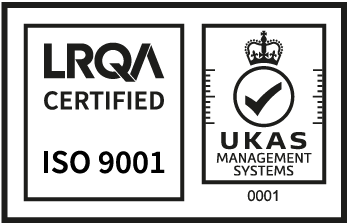About IER

About IER
Established in 1981, the Warwick Institute for Employment Research (IER) is a leading international social science research centre.
Research areas
IER's research is interdisciplinary and made relevant to policy makers and practitioners. It is renowned for consistently delivering high quality research. Research questions are tackled in projects funded by a range of public and private sector organisations and through publications in academic journals.
IER has built a considerable reputation for its expertise in a broad range of research fields, including:
- Labour market and skills intelligence
- Education, training and skills
- The Future of work
- Welfare and social inclusion
- Career guidance, development and transitions
- Job quality; fair, decent and good work
- Employment practices
- Regional and sector analysis
IER researchers have diverse disciplinary backgrounds and work both within and across disciplines. Publishing theoretical, methodological and empirical academic outputs is a core activity, but IER also places great emphasis on maximising its impact among potential users of research.
Research findings are also disseminated to the academic, policy and practitioner communities through IER’s own publications, research reports published by sponsors, key stakeholder events and international conferences. Click here for further details of IER publications.
More information
What's new?
Find out more in our IER newsletter
How to find us
We are located on the ground floor of the Social Sciences building, wings B and C, adjacent to Gibbet Hill Road (adjacent to bus terminal, Main Campus).
Closest car-parks to the Social Sciences building are multi-storey car-parks 7, 8 and 15 (5 minute walk):

Our strengths
IER uses multi-method, inter-disciplinary approaches to generate and tackle substantive research questions. Our strategy has been to broaden the methodological basis of IER work in order to deal more effectively with research problems that cross the boundaries of conventional academic disciplines and the methods of analysis associated with them.
We have one of the longest track records in employment forecasting, and much of our key research is also longitudinal. As a consequence, IER brings greater depth of insight to its research and can place findings within a long-term context.

IER track record
With over 40 years' experience of researching the labour market and its relationships with the wider economy, IER has a substantial track record of delivering high quality research and an established record of influential publications.
IER has worked successfully with major Government departments, ministries, research councils and agencies at national and international levels. Find out more about IER research projects here.

The IER team and interdisciplinarity
The IER research team brings together a breadth of labour market expertise from a variety of disciplines. It includes research leaders in: econometrics; forecasting; statistics; geography; social and public policy; sociology; education and training; organisational behaviour; career development; and industrial relations.
Our team is well networked in the University of Warwick and the broader UK and international research communities.
Strategic research collaborations and international partnerships
IER researchers have developed a strong network of international research partners, collaborators and IER Associate Fellows for interdisciplinary, international and strategic research collaboration. IER has extensive links with international research centres; the European Commission, the OECD and other international bodies; UK government departments and agencies, local authorities and sectoral organisations.
IER collaborates with leading research institutes in Europe on a range of cross-national comparative social science research funded , for example, by the European Commission (FP7 and EC Directorates General), Cedefop and EACEA. Collaborations and partnerships with, for example IFF, Ipsos MORI, Cambridge Econometrics and ROA (at the University of Maastricht) enable IER to undertake and develop large-scale surveys, to develop more effective comparative labour market analytic techniques and to undertake robust cross-cultural research on comparative and global labour market change.
Ensuring quality and striving for continuous improvement
IER researchers are committed to the University of Warwick’s policy of advancing and safeguarding the highest academic and ethical standards in all its research activities. IER has developed a quality management system for its research management activities, and which is certified by LRQA as meeting the requirement of ISO9001, the international quality management standard. IER is the first academic department of the University of Warwick to seek and gain ISO9001 recognition.
For further information on IER's QMS, contact the IER Administrator,

Our expertise
IER research activity is diverse, encompassing:- basic and strategic research
- labour market assessment and evaluation
- econometric modelling
- forecasting and scenario based research
- policy analysis and evaluation
- quantitative and qualitative, and mixed methods
- surveys of individuals, households and employers
- longitudinal data collection and analysis
- literature and evidence based reviews
- researcher-practitioner collaboration
- user participation
Impact of our work
IER’s research intentionally supports the work of policymakers and practitioners and we have a long and strong track record of in achieving user impact with our research.
Our research evidence underpins national and international policy and practice on, for example, employment and skills forecasting, the development of career guidance, apprenticeship and vocational education and training, the measurement of job quality, the transition of armed forces veterans into civilian working lives, ending poverty through work, calculating the growth of green jobs, skills policies in regional economies, mental health in work and the future of work.
IER undertook a number of research projects funded by government agencies as part of its Covid response and continues to co-host ReWAGE, a national independent group of experts to help government across the UK build back better work and employment.
IER also continues to develop national occupational classifications systems for governments, most recently in Barbados, and take up of IER’s Cascot software, designed to make the coding of text information to standard classifications simpler, quicker and more reliable, continues around Europe.
IER researchers regularly present evidence to government departments and parliamentary groups and inquiries as well as provide advice to government agencies and departments in the UK, EU, OECD and UN.
Read our impact case studies here.
IER has extensive experience and analytical skills in working with large repositories of socio-economic data and has developed substantial skills in the management and analysis of large datasets. This is complemented by substantial experience of survey design and management. IER researchers have also developed innovative applications in the research process, most notably in data collection methodology, socio-economic classification, survey analysis, forecasting and dissemination.
